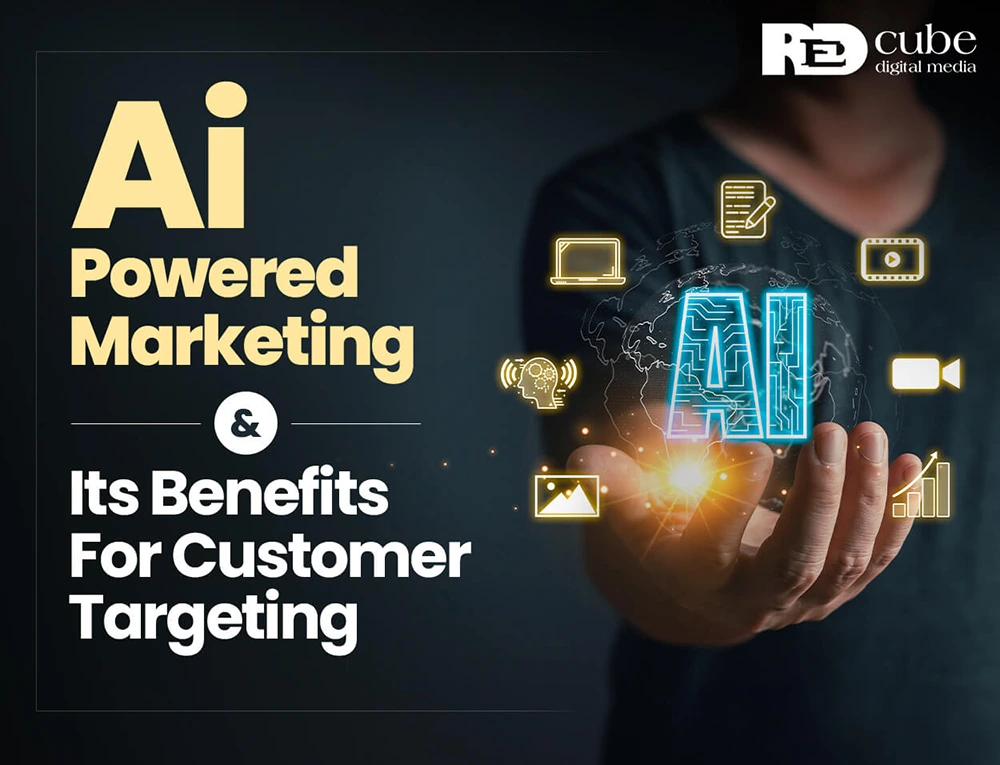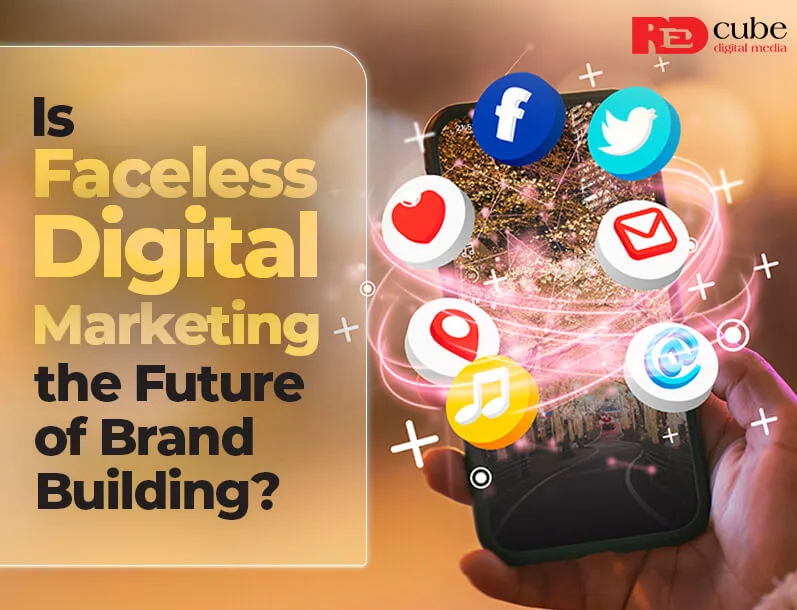Did you know about the AI-powered marketing? Well, as we live in a technology era AI (artificial intelligence) is booming. It’s important to know about artificial intelligence (AI) marketing strategies. AI-powered tools are becoming essential for optimizing marketing efforts by analyzing vast datasets, predicting consumer behavior, and delivering personalized experiences.
In this blog, we’ll explore how businesses can leverage AI to improve customer targeting and boost their marketing ROI.
The Role of AI in Marketing
AI is going to reshape traditional marketing. AI is capable of doing automated tasks, analyzing large volumes of data in real-time, and identifying patterns that may not be immediately apparent to human marketers. These capabilities create opportunities for businesses to deliver more personalized, relevant content to the right audience at the right time.
There are key areas where AI is being applied in marketing including:
- Data analysis and segmentation
- Predictive analytics
- Personalization
- Automated content creation
- Ad targeting optimization
AI analyzes customer data from multiple sources (web activity, purchase history, social media interactions) to segment audiences more effectively.
AI uses historical data to predict future behavior, authorize marketers to anticipate customer needs, and create proactive strategies.
AI-driven personalization tools make sure customers receive tailored messages, product recommendations, and offers based on their preferences and behavior.
AI can assist in producing content such as emails, ads, and social media posts, streamlining campaign management.
AI algorithms boost ad performance by identifying the best channels, times, and audience segments to target with ads.
4 Benefits of AI for Customer Targeting
AI offers several advantages that help businesses refine their customer targeting strategies:
1. Improved Audience Segmentation
AI can analyze large datasets and identify patterns and trends within. It allows businesses to segment their audiences in more meaningful and understandable ways. Traditional segmentation methods may group customers based on demographic factors, but AI can delve deeper into behaviors, preferences, and interactions to create dynamic segments.
- Behavioral segmentation
- Sentiment analysis
By examining customer actions such as browsing habits and purchase history, AI helps marketers target users based on their real-time behavior.
AI can analyze social media comments, reviews, and feedback to gauge customer sentiment and create more targeted messaging.
2. Improve Personalization
Consumers increasingly expect personalized experiences from brands. AI enables hyper-personalization by analyzing user data and interactions in real-time. AI-driven tools can deliver custom product recommendations, personalized emails, and dynamic website content tailored to each user’s preferences.
- Product recommendations
- Personalized email marketing
AI recommends products based on previous purchases, browsing history, and similar customer profiles.
AI helps marketers send personalized email content that resonates with recipients, improving open and click-through rates.
3. Predictive Customer Behavior
AI can anticipate customer actions by analyzing past behaviors, purchases, and preferences. Predictive analytics helps marketers target potential customers more accurately and identify key touchpoints in the customer journey.
- Churn prediction
- Upselling and cross-selling opportunities
AI models can flag customers who are likely to stop engaging with a brand, giving marketers the chance to implement retention strategies.
By predicting what customers are likely to purchase next, AI enables businesses to present timely, relevant offers.
4. Optimized Ad Campaign
AI significantly improves the efficiency of digital advertising. AI-powered platforms can analyze vast amounts of data in real-time to adjust ad bids, select optimal targeting criteria, and allocate ad spending more effectively.
- Programmatic advertising
- A/B testing
AI automates the process of buying and placing ads, ensuring that ads are delivered to the right audience at the right time.
AI tools can run multiple versions of ads and quickly determine which versions perform best with different audience segments.
4 Steps to Implement AI-Powered Customer Targeting
Businesses can follow a strategic approach to leverage AI for customer targeting:
1. Identify Key Customer Data Sources
Start by collecting data from a variety of channels, including your website, email campaigns, social media platforms, and CRM systems. This data will be the key to AI-powered insights and targeting strategies.
2. Choose the Right AI Tools
There are numerous AI tools available for marketing, from predictive analytics platforms to automated ad targeting systems. Some popular options include:
- HubSpot (AI-driven CRM and marketing automation)
- Google Ads (AI-powered ad optimization)
- Salesforce Einstein (predictive analytics and personalization)
3. Implement Predictive Analytics
Use AI-powered predictive analytics tools to anticipate customer behavior and adjust marketing strategies accordingly. Predictive models can help forecast customer needs, allowing you to deliver the right message at the right time.
4. Continuously Monitor and Optimize
AI thrives on data, and it’s crucial to continually monitor the performance of your AI-powered marketing efforts. Use machine learning algorithms to refine audience segments, optimize campaigns, and improve targeting accuracy over time.
3 Challenges in AI-Powered Customer Targeting
While AI offers significant benefits for customer targeting, there are also challenges that businesses should consider:
1. Data privacy concerns
Consumers are increasingly concerned about how their data is collected and used. Brands must ensure compliance with privacy regulations (e.g., GDPR) and maintain transparency about data usage.
2. Dependence on high-quality data
AI’s effectiveness depends on the quality and quantity of data it analyzes. Incomplete or inaccurate data can lead to flawed insights and targeting efforts.
3. Cost and complexity
Implementing AI solutions can require a significant investment in technology and expertise. Businesses should weigh the potential ROI before committing to advanced AI tools.
In the end, AI-powered marketing is how businesses approach customer targeting, offering powerful tools to analyze data, predict behaviors, and deliver personalized experiences. By leveraging AI, companies can optimize audience segmentation, boost personalization, and improve ad campaign efficiency. However, while AI presents numerous opportunities for better targeting and higher ROI, it’s necessary to consider the challenges, including data privacy concerns, reliance on high-quality data, and the cost of implementation.
As the marketing landscape continues to evolve, embracing AI technology can give businesses a competitive edge by improving customer engagement and driving more impactful results. To stay ahead, marketers should explore AI tools that align with their goals, continuously refine their strategies, and remain mindful of data privacy regulations.
If you’re ready to integrate AI into your marketing strategy, consider consulting with experts like Red Cube Digital to maximize your ROI and streamline your customer targeting efforts.



